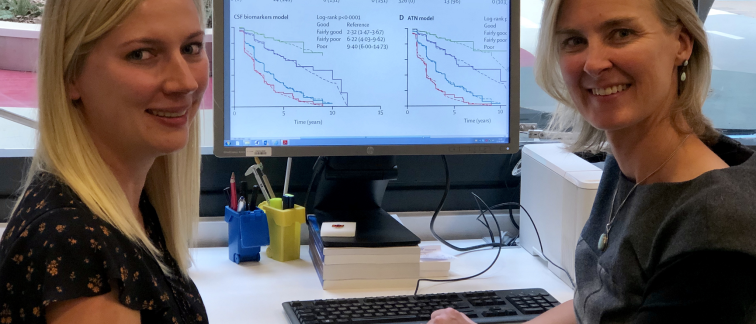Diagnostic tests
It is important to bring therapy and support to individuals as timely and accurate as possible, so these diagnostic tests have a predictive value for progression to dementia. In daily practice, the use of these tests are often a challenge. When do you use which test? How do you share the results with patients? And how do you involve patients and their loved ones in choices regarding this diagnosis?
Translation into the clinic
The researchers involved in the ABIDE project started working on these questions. ABIDE investigated the best applications of MRI scans, cerebrospinal fluid and PET scans and focused on involving patients and caregivers in diagnostic dilemmas. To support clinicians during this process the online ADappt tool (www.ADappt.health, in Dutch) has been developed that can be used by professionals to interpret and discuss AD diagnostics test results with their patients and caregivers. It functions as a conversation starter and decision-making tool.
Followup
The followup project called the ABIDE-clinical utility aims to investigate clinical utility (health benefits in terms of quality of life, care trajectories, life style modification, cognitive status, institutionalisation) of amyloid-PET using a big-data approach, leveraging on existing data where possible and adding novel data on quality of life.
In the European ADDITION followup the aim is to further develop and validate the individualised risk-prediction modelling. The researchers want to improve prognoses by developing individualised predictions of outcomes that matter to patients, such as quality of life, institutionalisation or remaining independent.
Partners
UMC Utrecht, Vilans, Roche, Espria, B.V. Cyclotron, Piramal Imaging, and ten local memory clinics.


